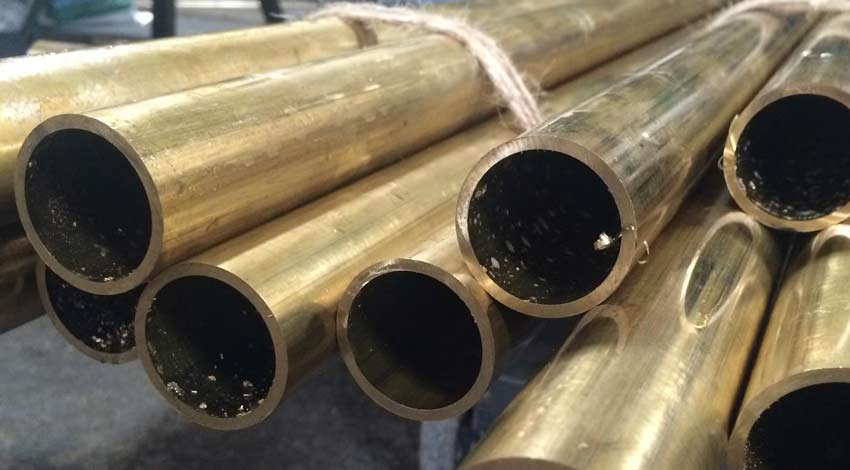
Brass is a metal alloy primarily composed of copper and zinc. The proportions of copper and zinc can vary, typically ranging from 55% to 95% copper, with the remaining percentage made up of zinc. Brass is known for its bright, gold-like appearance and is highly valued for its corrosion resistance, machinability, and durability. It is commonly used in applications such as plumbing fittings, electrical connectors, musical instruments, and decorative items. Depending on the zinc content and other alloying elements, brass can be made to have different properties, such as increased strength or improved resistance to wear.
Chemical Compositions :
| Chemical Element |
% |
| Cu |
62.00 - 64.00 |
| Al |
0.0 - 0.05 |
| Fe |
0.0 - 0.10 |
| Pb |
0.0 - 0.10 |
| Ni |
0.0 - 0.30 |
| Others (total) |
0.0 - 0.10 |
| Sn |
0.0 - 0.10 |
| Zn |
Balance |
Physical Properties :
| Property |
Value |
| Density |
8.44 kg/m3 |
| Melting Point |
916°C |
| Modulus of Elasticity |
103.4 GPa |
| Thermal Conductivity |
116
W/m.K |
| Thermal Expansion |
20.5x10-6 /°C |
Mechanical Properties :
| Property |
Sheet |
Tube |
| Tensile Strength |
300 - 550 MPa |
440 Min MPa |
| Proof Stress |
110 - 500 MPa |
320 Min MPa |
| Elongation A50 mm |
38 - 3% |
10 Min % |
| Hardness Vickers |
55 - 180 HV |
115 Min HV |
| Hardness Brinell |
- |
110 Min HB |
